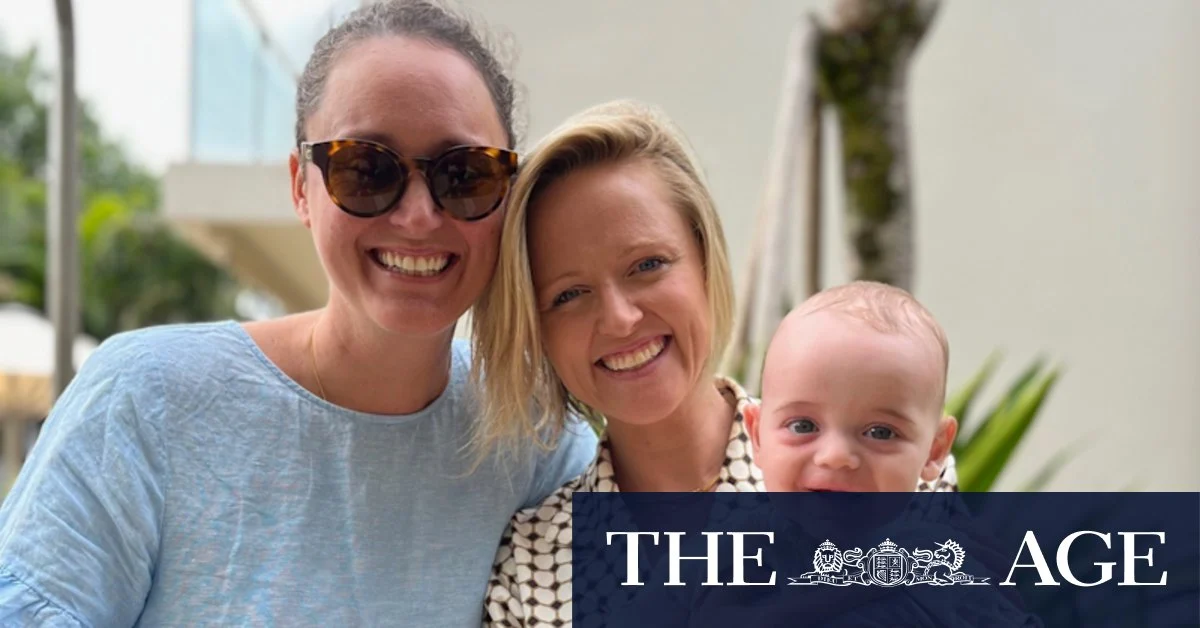In 2022, which is the most recent data available, one in 16 Australian babies were born through IVF, and 1184 babies were born using a surrogate or donor eggs. One in three IVF cycles were undertaken due to male infertility.
Mitchell has been working with McCloy, who has been advocating for better support for prospective parents since her own surrogacy experience. “Parenthood should be an option for every Australian, no matter what it looks like,” McCloy said.

Nationals MP Sarah Mitchell believes the government should better support the journey to parenthood.Credit: Rhett Wyman
McCloy’s passion is surrogacy reform. She believes the laws around surrogacy in Australia – only altruistic surrogacy is presently allowed – should be loosened because most families had no option but to look overseas at often-exploitative markets.
She has two children of her own, and made the offer to carry her best friend’s baby with the full support of both their husbands. But the process requires a “huge level of trust”, she said, in part because of existing laws.
“My husband and I were Angus’ legal guardians for the first 11 months of his life,” she said. “If they [his parents] wanted to apply for daycare, I had to sign.
Loading
“In every other market that offers surrogacy, there’s a pre-birth surrogacy order, so when the child is born, he’s with his parents. [Reform would require] a simple change to legislation.”
McCloy is also concerned about the commercial surrogacy black market, in which Australian women advertise on social media offering to carry couples’ babies, but there’s no protection for either the woman or the prospective parents.
The US is Australians’ top surrogacy destination due to legal safeguards and high-quality healthcare, but it’s also the most expensive; costs can reach $200,000 for donor eggs, surrogate expenses, medical bills and agency fees.
The Department of Communities and Justice is doing a statutory review of NSW surrogacy laws, but there’s no public due date. The law reform commission is also reviewing them, given the differing laws around the country, but is not due to report until mid-2026.
Loading
Another concern for Mitchell is the challenges of accessing IVF for people who live in regional Australia.
“I can’t tell you the number of people I’ve met who’ve been through really challenging circumstances,” she said. “They want to talk about it, they want change, it’s our job to listen and to act.”
Fast blood tests are crucial to time elements of the IVF cycle, but Smith could only find one lab in Tamworth – and none in other towns – that could turn them around in time. Timing is imprecise, too, but last-minute flights to Sydney, where the procedures take place, can cost $400 each way.
“There’s so many people who can’t do that; it has a huge financial toll,” she said.
Armidale-based Jen Laurie, who hosts the Her Herd podcast, said IVF is extremely difficult for women in the bush. “They’re having to drive two to three hours for every blood draw, they’re taking time off work, from the farm – none of that is conducive to the outcomes they want,” she said.
Start the day with a summary of the day’s most important and interesting stories, analysis and insights. Sign up for our Morning Edition newsletter.


